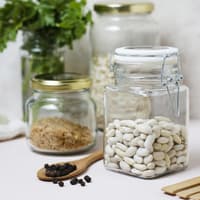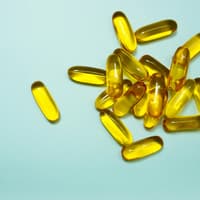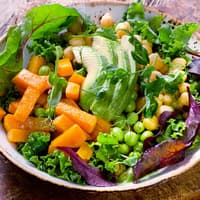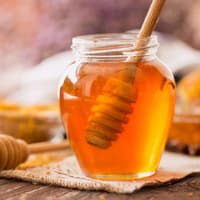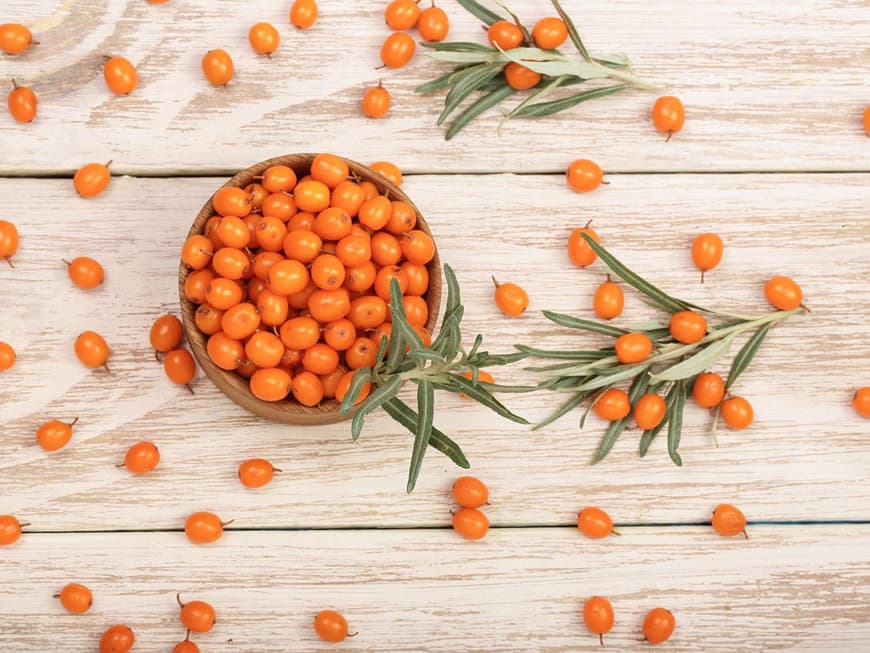
Vitamin C
It is the most important ingredient in sea buckthorn. Just a few teaspoons of sea buckthorn juice cover the daily requirement of an adult. It contains ten times as much of this important vitamin as a lemon.
Vitamin B
Sea buckthorn is one of the few plant foods that contain vitamin B12 - this vitamin is otherwise only found in animal products. This is why sea buckthorn is also an important source of B12 for vegetarians and vegans. What's more, the small, compact berry also provides the fat to dissolve the vitamins and make them usable by the body.
Beta-carotene
Its beta-carotene content beats even carrots hands down. This is why sea buckthorn is good for colds, pharyngitis, tonsillitis and fever. Beta-carotene is also important for the skin, mucous membranes and strong bones. The "kiwi of the north" also contains the minerals iron, calcium, manganese and magnesium.
Vitamin E
Last but not least, sea buckthorn is also rich in vitamin E. Especially in winter, this wild fruit strengthens our immune system and is good for colds. Sea buckthorn also has an anti-inflammatory effect and promotes wound healing - a real German superfood.
Sour juice
Unfortunately, sea buckthorn juice is extremely sour. It tastes good when mixed with apple juice or with a spoonful of honey. Sea buckthorn jam, jelly or liqueur are also available in health food stores.

